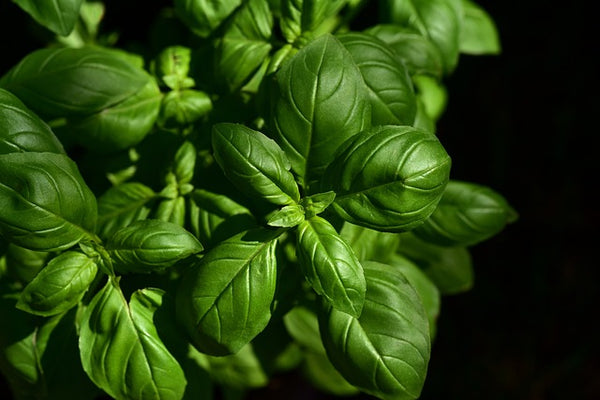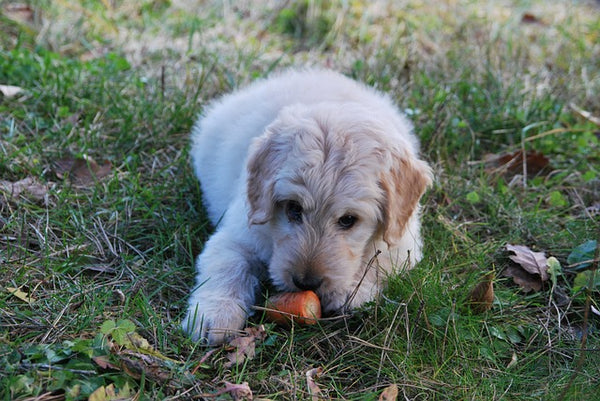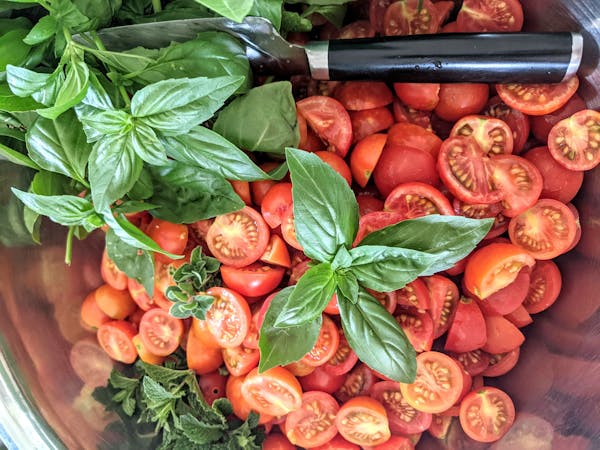
Can Dogs Eat Basil? 2024 Update Answer!
Can dogs eat basil? Yes, they can eat it. Basil: an herb good for dogs. It is known to be a helpful plant for your furry dog's health. When cooking food for dogs, pet owners usually add basil for added nutrition.
However, not all dogs are suitable for basil. Sometimes, basil can be harmful or even life-threatening to your furry dogs. Reading this article will help avoid harm to your companion when using basil.

Table of Contents
1.What is Basil?
Basil is a group of edible herbaceous plants that are mostly annuals, with a few perennials. Basil includes several cultivars.
A common variety in the Far East is Thai basil, which has a strong flavor. Sweet basil is the most common variety found on the western Mediterranean coast. It has a light flavor and a less astringent taste.
2.Can Dogs Eat Basil?
Basil is a beneficial herb for furry dogs. It has antioxidant and anti-inflammatory properties. Adding the right amount of basil when cooking your dog's food adds flavor and provides vitamins and minerals.
However, it is important to note that not all dogs are suitable for basil. Just as humans are allergic to certain foods, furry dogs can also have allergic reactions.
If your dog has allergies, such as itching, swelling, or trouble breathing while eating, stop feeding them. Seek medical help immediately.
Despite the health benefits of basil for furry dogs, overfeeding may lead to stomach upset, vomiting, and diarrhea. Therefore, be careful to feed in moderation to avoid causing gastrointestinal discomfort to your dog.
3.Benefits of Basil for Dogs
Basil is full of antioxidants that help protect your dog's immune system and guard against cellular damage. It is also a great source of vitamins A and K as well as minerals such as calcium, iron, and magnesium.
For furry dogs, basil possesses anti-inflammatory properties that reduce joint pain and swelling. It also has antibacterial and antifungal properties which help protect against infections and skin problems. It also strengthens a dog's immune system and promotes healthy digestion.
And since basil contains ingredients that can help detoxify and digest the liver, it addresses digestive issues in dogs, such as flatulence and bloating.
Additionally, conclusions based on studies on mice may also apply to dogs. Studies say basil has benefits that can reduce memory loss; inhibit bacterial growth to avoid cavities in pets; and support health by reducing blood sugar, cholesterol, and triglycerides.
4.How Do I Feed Basil to My Dog?
You can add a moderate amount of fresh basil leaves to your dog's food. Or sprinkle a small amount of dried basil leaves into the food. Dogs should avoid basil essential oils and extracts because of their high concentration, which makes them toxic.
Basil leaves have a strong taste that may be new to your dog. Begin with a small amount and slowly increase it to help your furry friend become accustomed to it.

5.Foods that interact with basil
People usually mix garlic and onions with basil, but this combination can have harmful effects on dogs. Dogs may develop anemia or other health problems after ingesting these foods.
Therefore, you need to be aware of such pairings before feeding your dog human food scraps.
6.Herbs Good for Dogs
If your dog doesn't like to consume basil or is allergic to it, try other herbs.
6.1 Turmeric
Many people use turmeric to treat joint pain and inflammation in dogs. It contains curcumin, a powerful antioxidant that helps reduce pain caused by arthritis.
However, high doses of turmeric can act as a blood thinner and cause stomach upset. Thus, it is important to pay attention to the dosage when feeding your dog.
6.2 Parsley
Parsley is rich in vitamin K, folic acid, potassium, manganese, B vitamins, calcium, and magnesium. It can help your dog to strengthen its immunity and promote healthy growth.
It has fiber that helps your dog's digestion and relieves constipation.
In addition, parsley has anti-hypertensive and hypolipidemic properties that help maintain your dog's heart health.
However, be careful not to overfeed it, as it may lead to diarrhea in your dog. When preparing parsley as food for small dogs, cut it smaller to avoid suffocation.
6.3 Rosemary
Rosemary is rich in sage acid, which helps protect the brain and break down body fat. It is widely used in the medical field for both humans and pets, helping with weight loss, improving memory, and boosting the immune system.
It can help with digestion by relieving issues like colitis, constipation, and bad breath.
However, overfeeding may lead to skin allergies in dogs.
6.4 Ginger
A small amount of ginger is safe for furry dogs and can provide many health benefits. Fresh ginger root has antioxidants and anti-inflammatory properties. These can improve blood circulation, reduce bloating, and support heart health.
6.5 Goji Berries
Goji berries contain substances that boost the immune function in your dog's body and help increase resistance. It also has fire-clearing and detoxifying properties that help maintain the health of your dog.
Owners can feed their dogs a few gojis berry every once in a while. However, it is not recommended to feed them frequently so as not to affect the health of the dog.
It should be noted that goji berries should be boiled in water before feeding them to your dog. Otherwise, it may lead to diarrhea or indigestion in furry dogs.
6.6 Oregano
Oregano is rich in antioxidants, which help to protect your dog's cells from free radical damage. Moreover, some components in oregano have anti-inflammatory properties that help reduce inflammation and discomfort.
It also contains vitamins, minerals, and other nutrients that help maintain your dog's overall health.
But owners should also feed their furry dogs in moderation and not give them too much.

7.Summary
As an herb good for dogs, basil is edible for dogs. It can provide many health benefits for furry dogs. However, you need to be careful about the dosage when feeding it. Don’t feed too much as it can easily lead to diarrhea in dogs.
Also, pet owners shouldn’t overly rely on basil to maintain or treat their pet's health. Pet owners should choose the right herb to feed their pets based on their particular condition.
For more about dog food? Click here.